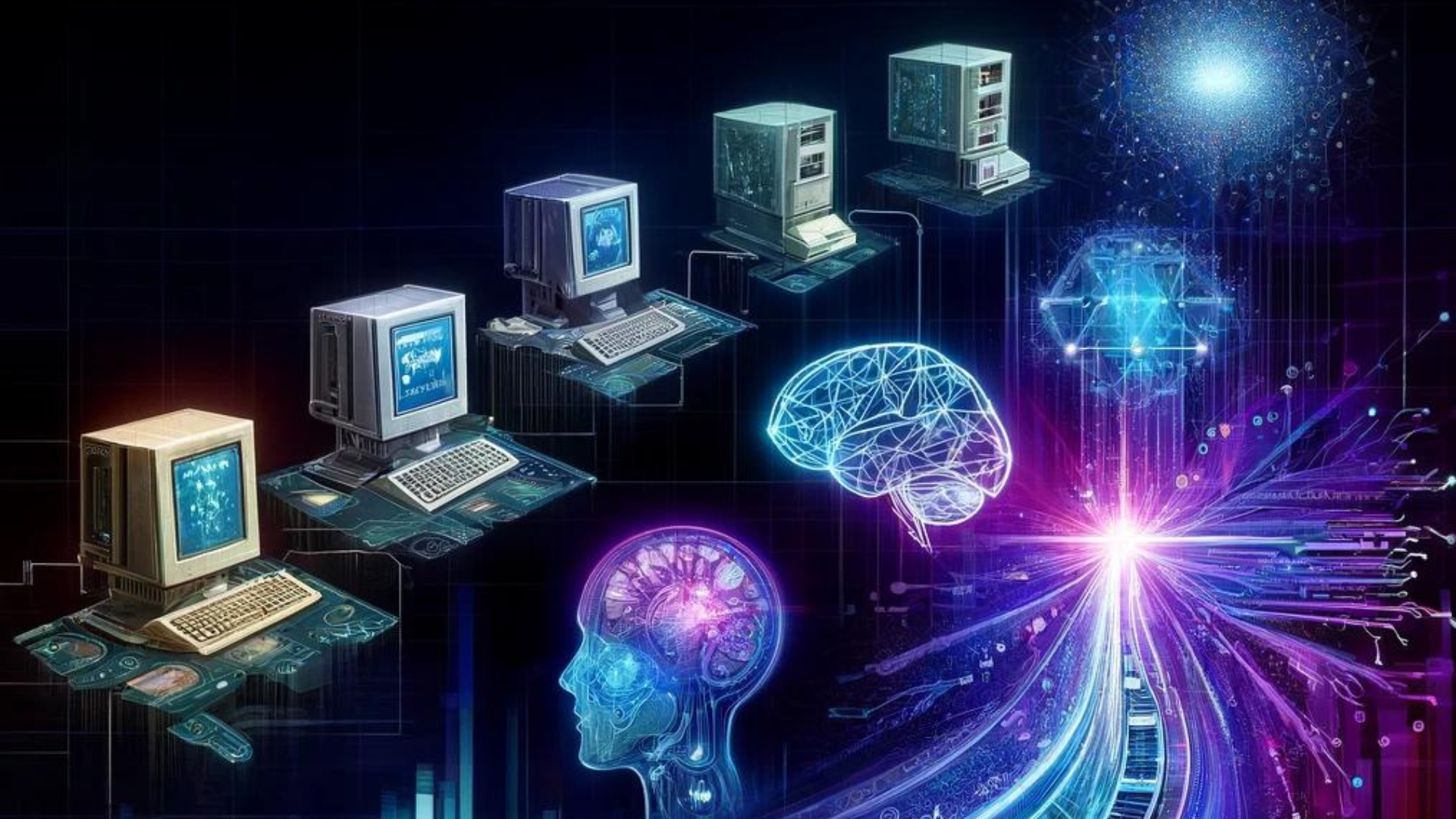In today’s rapidly evolving business landscape, the integration of Artificial Intelligence into daily operations is no longer a futuristic concept but a present-day reality. AI’s potential to revolutionize the way we work is immense, offering unprecedented opportunities for innovation, efficiency, and growth. This blog explores how automating work with AI can transform the modern workplace, enhance productivity, and create a more dynamic and competitive business environment.
The Dawn of AI in the Workplace
AI’s journey from a theoretical concept to a practical tool has been marked by significant advancements in machine learning, natural language processing, and data analytics.
These technologies enable AI systems to perform tasks that traditionally required human intelligence, such as understanding language, recognizing patterns, and making decisions. As a result, AI is now being integrated into various aspects of business operations, from customer service and marketing, to finance and human resources.
Enhancing Operational Efficiency
One of the most significant benefits of automating work with AI is the enhancement of operational efficiency. AI-powered systems can streamline processes, reduce errors, and optimize resource utilization. For example, in customer service, AI chatbots can handle routine inquiries, freeing up human agents to focus on more complex issues. In finance, AI algorithms can analyze vast amounts of data to detect fraud patterns or predict market trends, enabling more informed decision-making.
Revolutionizing Decision-Making
AI’s ability to analyze large datasets and extract valuable insights is transforming decision-making across various sectors. In healthcare, AI assists in diagnosing diseases, planning treatments, and predicting patient outcomes based on extensive data analysis. In marketing, AI algorithms can identify consumer behavior patterns and preferences, allowing businesses to tailor their campaigns more effectively.
By providing data-driven insights, AI empowers organizations to make more accurate and strategic decisions.
Personalizing Customer Experiences
AI is also revolutionizing the way businesses interact with their customers. Through natural language processing and computer vision, AI systems can understand and respond to human queries, providing personalized recommendations and assistance. Virtual assistants and chatbots enhance user experiences by adapting to individual preferences, making interactions more engaging and efficient.
This level of personalization not only improves customer satisfaction but also drives brand loyalty and retention.
Smart Automation in Agriculture
The agriculture sector is a prime example of how AI can surpass human capabilities through smart automation. By combining various technologies, such as sensors, drones, and satellites, AI creates a smart farming ecosystem that continuously monitors parameters like soil moisture, temperature, and crop health.
Machine learning algorithms process this data to provide insights for informed decision-making. Automated irrigation systems deliver precise amounts of water based on real-time conditions, while AI-powered robots handle delicate tasks like harvesting crops. This integration of AI in agriculture boosts productivity, minimizes resource wastage, and enhances sustainability.
Unlocking Collective Intelligence
AI’s potential to unlock the value of collective intelligence is another transformative aspect. By capitalizing on the expertise of the entire workforce, regardless of location or job function, AI enables businesses to harness the full potential of their human resources. For instance, AI-driven collaboration tools can facilitate knowledge sharing and innovation across teams, breaking down silos and fostering a more collaborative work environment.
This not only enhances productivity but also drives continuous improvement and growth.
The Future of Work: Humans + AI
The future of work lies in the symbiotic relationship between humans and AI.
The concept of the augmented enterprise (AE) represents a work environment where AI works hand in hand with people to elevate their intellectual capacity and enhance their performance. By automating routine tasks, AI frees up employees to focus on higher-value activities that leverage their unique human skills, such as creativity, critical thinking, and emotional intelligence. This not only enhances individual fulfillment, but also drives organizational performance.
Overcoming Challenges and Embracing Change
While the benefits of automating work with AI are clear, organizations must also navigate the challenges associated with AI adoption. This includes addressing concerns about job displacement, ensuring data privacy and security, and managing the ethical implications of AI. To thrive in this evolving landscape, businesses must embrace a mindset of continuous learning and adaptation.
This involves investing in AI education and training, fostering a culture of innovation, and developing robust governance frameworks to guide AI implementation.
Conclusion
Automating work with AI is not merely an add-on feature but a transformative force that can drive operational efficiency, enhance decision-making, and create personalized customer experiences. By harnessing the full potential of AI, organizations can unlock new pathways for growth, productivity, and competitive advantage. As we move towards an AI-augmented future, the key to success lies in embracing change, fostering collaboration between humans and AI, and continuously exploring the possibilities that AI offers. The journey towards automation with AI is just beginning, and the opportunities it presents are boundless.






